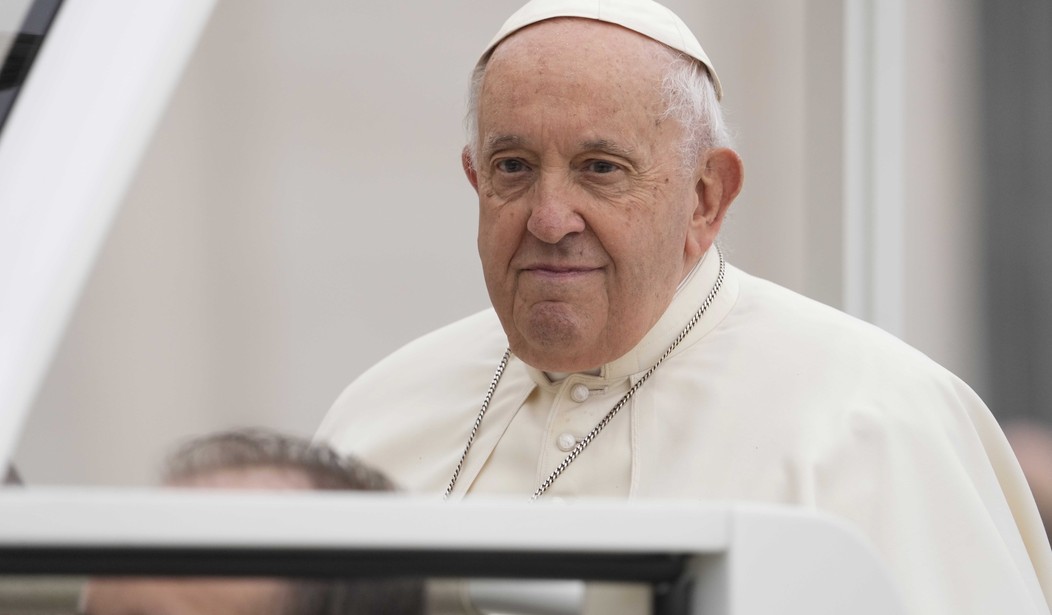Pope Francis took aim at the U.S. Catholic Church and unloaded both barrels.
“I would like to remind those people that ‘indietrismo‘ (being backward-looking) is useless, and we need to understand that there is an appropriate evolution in the understanding of matters of faith and morals,” the pope said in response to a question about U.S. Catholics during a meeting in Lisbon, Portugal, on Aug. 5.
It was a scathing critique of Catholic bishops who have resisted the radical changes in the church since Francis put on the Shoes of the Fisherman. And Francis sounded almost petulant in describing the U.S. bishops’ transgressions.
“In the United States, the situation is not easy: There is a very strong reactionary attitude. It is organized and shapes the way people belong, even emotionally,” the pope said. He was responding to a question from a local Jesuit as has been the Pope’s custom when taking foreign trips.
“Those American groups you talk about, so closed, are isolating themselves,” Pope Francis said. “Instead of living by doctrine, by the true doctrine that always develops and bears fruit, they live by ideologies. When you abandon doctrine in life to replace it with an ideology, you have lost, you have lost as in war.”
Isn’t Francis talking about his own anti-doctrinal approach to many issues like removing the taint of sin from homosexuality and from divorce?
“In other words, doctrine also progresses, expands, and consolidates with time and becomes firmer, but it is always progressing,” he said. “Change develops from the roots upward, growing in accord with these three criteria.”
“The view of church doctrine as monolithic is erroneous,” the pope said.
Hey, that’s a great idea. Let’s make the infallibility of popes optional.
In trying to sell “progress” in church doctrine, Francis gave some examples.
“Today it is a sin to possess atomic bombs; the death penalty is a sin, it cannot can be practiced, and it was not so before,” he said. “As for slavery, some pontiffs before me have tolerated it, but things are different today.”
Slavery has not been “tolerated” by the papacy since before the Civil War. And trying to compare atomic weaponry or the death penalty to LGBTQ issues or even slavery is absurd.
When asked by a Jesuit who works with university students how this applies to gay students who are not living celibately, but are still active in the church, the pope did not demur.
“The door is open to everyone, everyone has their own space in the church,” said Francis. “How will each person live it? We help people live so that they can occupy that place with maturity, and this applies to all kinds of people.”
“What I don’t like at all, in general, is that we look at the so-called ‘sin of the flesh’ with a magnifying glass,” said Francis. “If you exploited workers, if you lied or cheated, it didn’t matter, and instead relevant were the sins below the waist.”
Now the real Francis emerges. Sinning by engaging in gay sex is not as important as “exploiting workers” — whatever that means.
And yes, since worker “exploitation” in any real sense of the word is rare, while sinning as a gay person engaging in sex against church doctrine is not, aren’t Catholic bishops properly concentrating on the right sin?
Church doctrine isn’t “progressive” or “conservative.” It is what it is as it always has been. While “being gay” is no longer a sin, the act of gay sex remains so — and given the rest of the church’s teaching, properly so.
Pope Francis is from a wing of the church that felt “solidarity” with the working class against the ruling class. It had its secular roots in Marxism and “liberation theology.” While Francis may have nominally rejected that theology, he still embraces some of its tenets.
Francis was asked how he would respond to Catholics who identify as gay and want to be full and active members of the church, including taking the sacraments, but still believe their sexual activity isn’t sinful.
“Jesus is very clear about this,” the pope said. “The door is open to everyone; everyone has their own space in the church.”
Jesus may have been clear about it, but Francis passed on answering the question. Indeed, how can a sexually active gay person receive Holy Communion or any other sacrament in a doctrinal state of sin?
The Catholic bishops are not without sin. I would like to have heard Francis’s views on the continuing crisis of sexual abuse of minors and the church’s blatant cover-up of the lawbreaking. But he’s too busy fighting capitalism to deal with real problems in the church.










